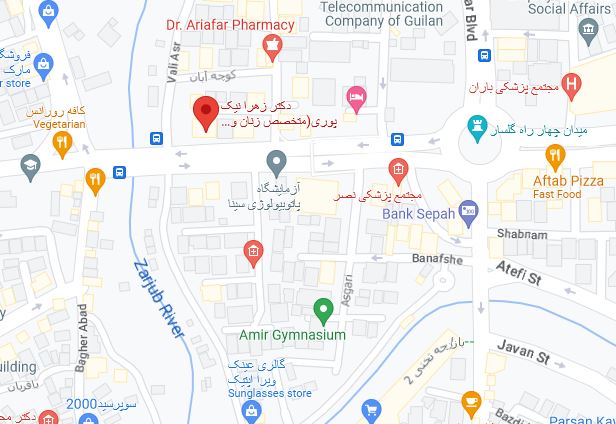Are Anthracyclines Necessary in HER2-Positive Breast Cancer
|
Zosia Chustecka
Medscape FREE App available on
The Breast Cancer International Research Group (BCIRG) 006 study established the benefit of trastuzumab (Herceptin) in patients with HER2-positive early-stage breast cancer, and compared how the targeted agent performed in combination with an anthracycline-containing regimen (doxorubicin [Adriamycin], cyclophosphamide, and docetaxel) and with a nonanthracycline regimen (docetaxel and carboplatin). In the editorial, Daniel Hayes, MD, from the Breast Oncology Program at the University of Michigan Comprehensive Cancer Center in Ann Arbor, says that the study results "do not show the hoped-for superiority" of the nonanthracycline regimen. "Taken together, these data do not clearly favor one regimen over the other," Dr. Hayes writes. Hence, this trial establishes the nonanthracycline regimen as "another (but not 'the') standard of care for adjuvant treatment of HER2-positive early-stage breast cancer," the editorial concludes. This is at odds with the take-home message long espoused by Dr. Slamon, who is well known for his stance against the use of anthracyclines. "This trial should impact the way these breast cancers are treated, with a nonanthracycline regimen being our preferred option," he said in a statement. "I think this is a change that is going to be slow in coming, unfortunately, as many of our adjuvant treatments for breast cancer are built on the backbone of anthracyclines. While they're effective, whatever gain patients may receive is more than made up for in the serious and chronic long-term side effects." Not everyone agrees with that assessment, however. When Dr. Slamon first reported these results at the 2009 San Antonio Breast Cancer Symposium and concluded that anthracyclines are unnecessary, another breast cancer expert said his conclusions "were going beyond the data." "Many oncologists will differ with his opinion," Gary Lyman, MD, from the Duke Comprehensive Cancer Center in Durham, North Carolina, told Medscape Medical News at the time. He emphasized the slight difference in efficacy favoring the anthracycline regimen, which is now pointed out in the editorial. "Bottom line, there can be, among intelligent people, very different conclusions about the same data, "Dr. Lyman said. When approached for outside comment, Gabriel Hortobagyi, MD, FACP, professor of breast medical oncology at the University of Texas M.D. Anderson Cancer Center in Houston, told Medscape Medical News that "BCIRG 006 is the only clinical trial of adjuvant chemotherapy in HER2-positive primary breast cancer that contains a nonanthracycline-containing chemotherapy backbone. While this work was presented around the same time as the other pivotal trials of trastuzumab-containing adjuvant therapy, it has taken 6 years to go through peer review and be published. This, in and of itself, is highly unusual and somewhat puzzling." "The strength of the work is its design, the large number of patients recruited, and the inclusion of the nonanthracycline arm. The weakness is the overinterpretation of the results. I think this work supports the use of a nonanthracycline-containing trastuzumab regimen for some patients with HER2-positive breast cancer. My group uses TCH [Taxotere (docetaxel), carboplatin, Herceptin] for patients with contraindications to anthracyclines or for patients with HER2-positive breast cancer but with a low enough risk to make the relative cardiac safety of TCH a worthwhile choice (e.g., the very small — less than 1 cm — HER2-positive node-negative tumors). Otherwise, we prefer the standard anthracycline-containing chemotherapy regimens," Dr. Hortobagyi explained. No Difference in Efficacy The paper by Dr. Slamon and colleagues reports results at a median follow-up at 65 months. The estimated disease-free survival rates at 5 years were 75% with the anthracycline regimen with no trastuzumab; 84% with the anthracycline regimen plus trastuzumab, and 81% with the nonanthracycline regimen plus trastuzumab. The estimated overall survival rates were 87%, 92%, and 91%, respectively. There was a slight numerical benefit for the anthracycline regimen over the nonanthracycline regimen, but it was not statistically significant, Dr. Hayes writes. Dr. Hortobagyi also focused on this point. The Kaplan–Meier curves show no statistically significant difference, but he noted that in all of them, the curves are numerically inferior for the nonanthracycline combination. "There are more than 10,000 patients treated with the anthracycline-containing regimens in clinical trials, but only about 1000 are treated with TCH. I would like to see a confirmatory trial to ensure that we are not changing practice based on this limited experience. Furthermore, our group has some information, based on a retrospective analysis of our institutional experience, that suggests that TCH is significantly less effective than the anthracycline-containing regimens (manuscript in press)," Dr. Hortobagyi explained. Significant Differences in Toxicity Patients in the anthracycline groups had a significantly higher rate of congestive heart failure than those in the nonanthracycline group (21 vs 4 cases), and a significantly higher rate of acute leukemia (7 vs 1 case). However, the authors note that the leukemia in the nonanthracycline group developed outside of the study, after that patient had received an anthracycline for a B cell lymphoma that occurred after her breast cancer. At the time the paper was written, 5 of the 8 patients with leukemia had died. There was also a significant difference favoring the nonanthracycline group for arthralgias, myalgias, hand-foot syndrome, nail changes, stomatitis, vomiting, and sensory and motor neuropathies, the authors report. Dr. Slamon emphasized this toxicity difference between the anthracycline and nonanthracycline regimens. "Given the data in this study, it makes one really question what role [the anthracycline doxorubicin] should play in the treatment of HER-2 positive early breast cancer, or in the treatment of early breast cancer at all," he said. In addition, the editorial suggests that the risk for secondary leukemia or irreversible congestive heart failure from the anthracycline is arguably similar to the small but insignificant benefit of the anthracycline regimen over the nonanthracycline regimen (about 1 to 2 additional lives saved per 100 patients). The BCIRG 006 results suggest that the nonanthracycline regimen of docetaxel plus carboplatin is "an acceptable standard of care," the editorial concludes. The study was supported by Sanofi-Aventis and Genentech. Dr. Slamon reports receiving honoraria from Genentech and Sanofi-Aventis. Two of the coauthors are employees of Sanofi-Aventis. Dr. Lyman has disclosed no relevant financial relationships. Dr. Hayes reports serving as a board member for OncImmune; receiving grants from Veridex, Pfizer, and Novartis; and acting as a consultant to Compedia Biosciences, Chugai, and Biomarker Strategies. Dr. Hortobagyi reports being a consultant to Allergan, Genentech, Merck, Novartis, Sanofi, and Taivex, and receiving research support from Novartis.
|


